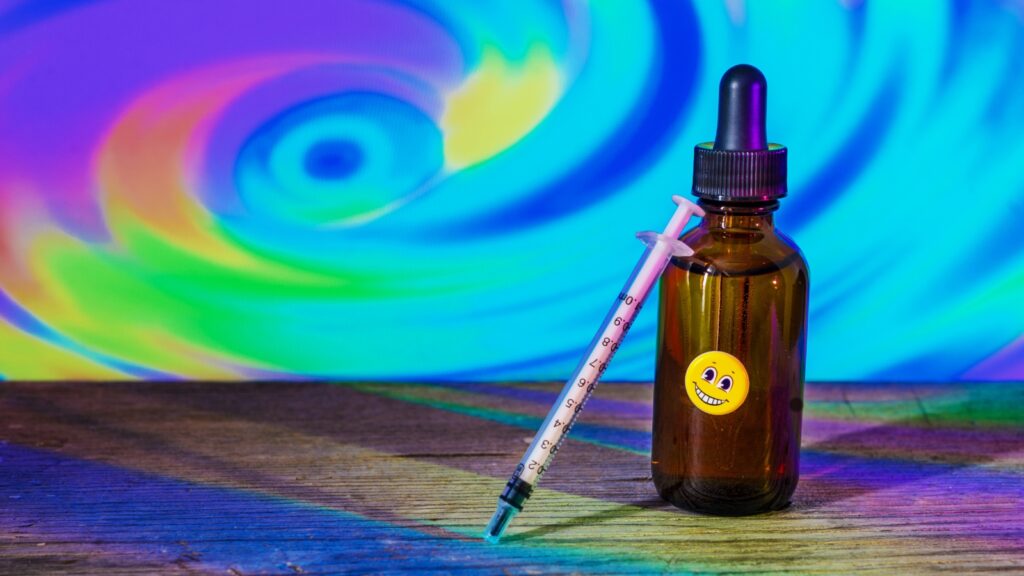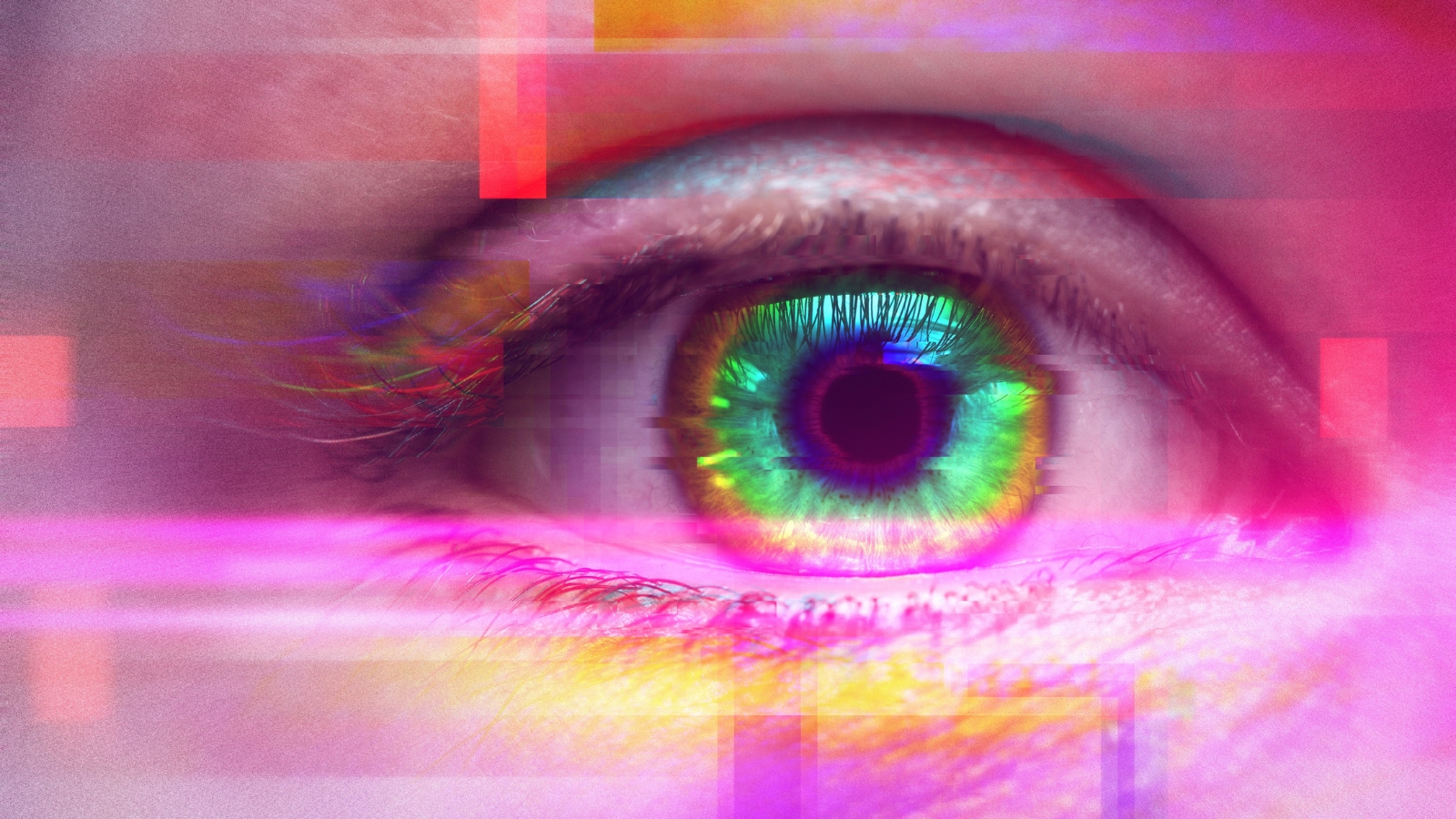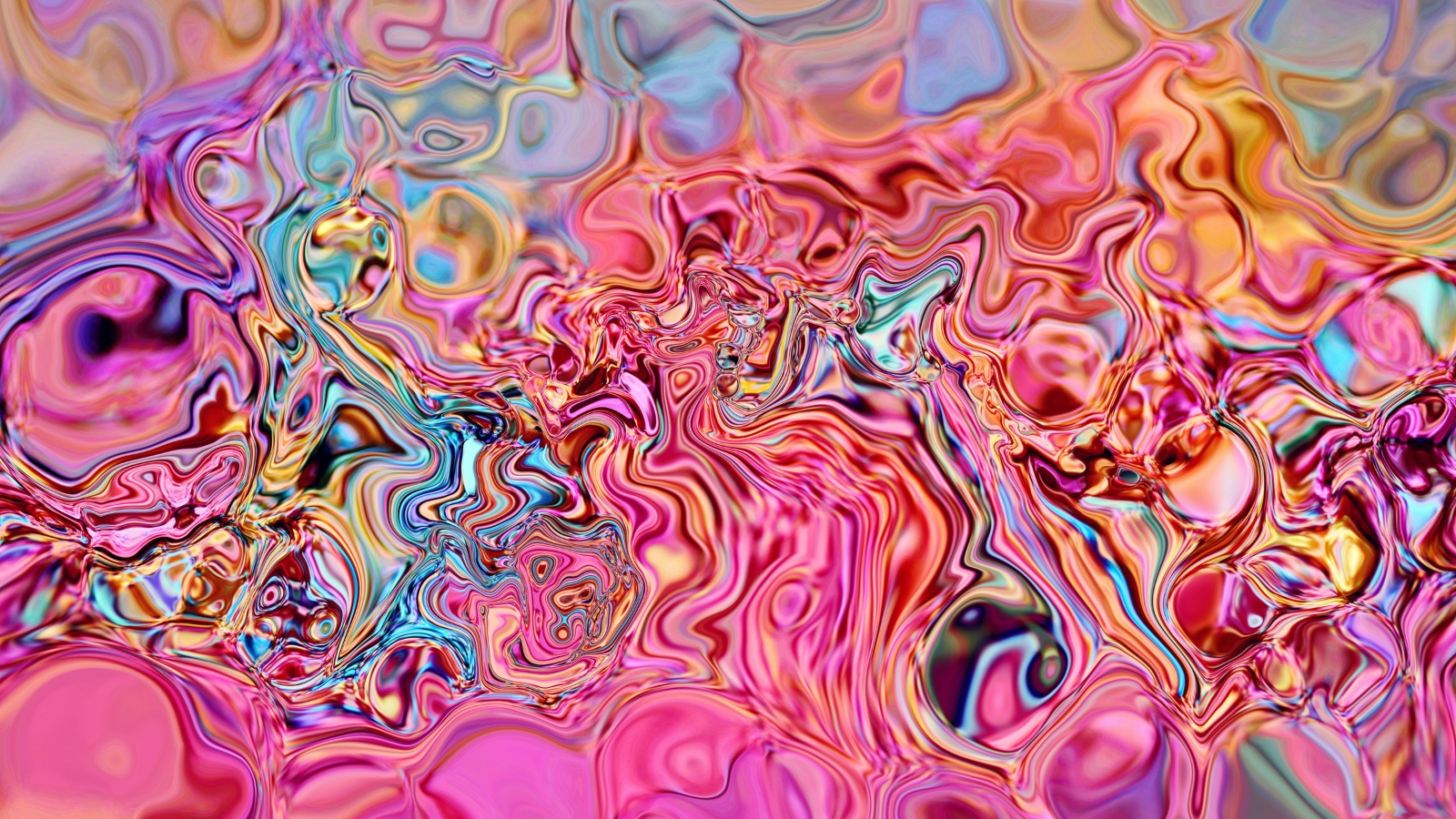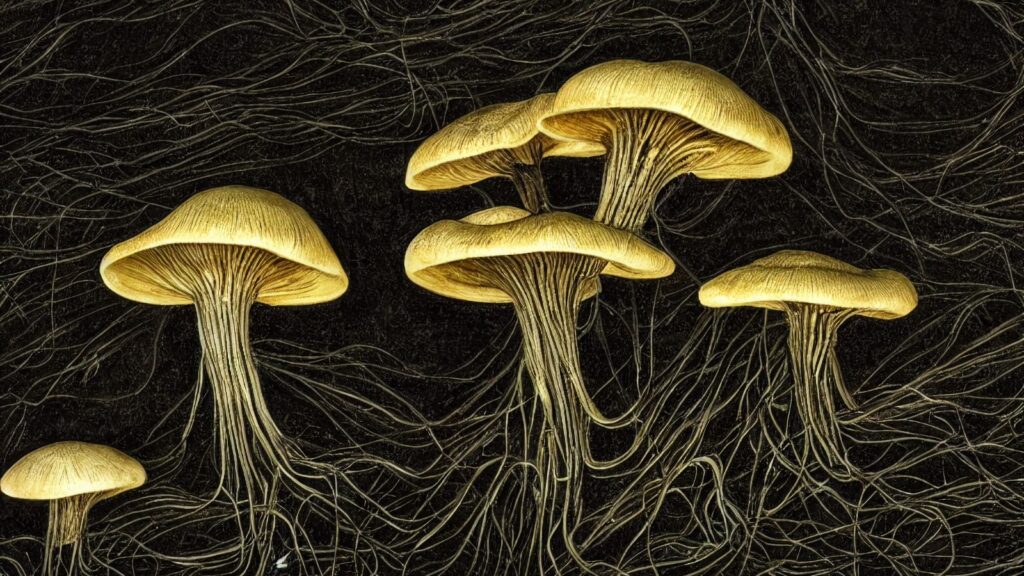Do you smoke?
“No.”
Have you ever smoked, or used other tobacco products?
“No.”
There has been the occasional cigar, and half a century ago, among college friends, plenty of joints, not to mention pipefuls of weed or hashish or kief. But I’m pretty sure these Indiana nurses have Marlboros and Copenhagen in mind. No need to complicate things.
Do you drink alcohol?
“Yes!”
How often?
“Every evening. My wife and I share a bottle of wine.”
How about recreational drugs?
Now I give a vague little shake of the head as I turn away.
“How about them?”
I’ve never put my questioner on the spot to define “recreational drugs.” The term obviously reaches past tobacco and alcohol, the legal drugs already covered. Perhaps “recreational” stands in for “illegal”—a rhetorical dodge that would make sense in this context. No one wants to pick up a vibe of accusation in a doctor’s office; people feel uneasy enough as it is. But if it’s supposed to name a set of drugs different from cigarettes and whiskey, “recreational” doesn’t do the job.
People smoke and drink for recreation. They share this characteristic with whatever drugs the nurse has tacitly included under the heading recreational. Let’s go ahead and list some likely suspects: marijuana, cocaine, heroin, and, of particular interest to me, LSD and the other psychedelics.
The Pejorative Nature of “Recreational”
Apart from its dubious value as a classifying term, “recreational” in this context sounds pejorative. It stands in sharp distinction from “therapeutic” within medical rhetoric. Drugs acquire value to the degree they offer therapy; their use is justified strictly in pursuit of that end. The same principle anchors ethical positions set out by many mainstream religions, including the Roman Catholic Church of my upbringing. The Catechism has this to say about drugs:
2291 The use of drugs inflicts very grave damage on human health and life. Their use, except on strictly therapeutic grounds, is a grave offense. Clandestine production and trafficking in drugs are scandalous practices. They constitute direct cooperation in evil, since they encourage people to practices gravely contrary to the moral law.
Three uses of “grave,” in such close quarters! A style so ponderous could only mean moral urgency has overwhelmed every other consideration in the writers’ minds. The Catechism grants an exception only for “strictly therapeutic” use, which rules out any recreational intentions. Like the nurse, the Catechism names alcohol and tobacco, but no other specific substance.
Everything else gets lumped into the single vague category of “drugs.” Alcohol and tobacco don’t count as drugs, because they belong to a more benign group that includes food: “2290 The virtue of temperance disposes us to avoid every kind of excess: the abuse of food, alcohol, tobacco, or medicine.”
Questioning the Psychedelic Resurgence Narrative
Jesuit priest Joe Lorenz wrote a recent blog (picked up by America) in which he questions this official definition of drugs. He also offers a specific question about the Catholic perspective on psychedelics. Why does his Church normalize the use of alcohol and tobacco—drugs that can actually be quite harmful to human health—and shun psychedelics, now emerging as therapeutic agents? “As Catholics, we should take seriously the possibility that psychedelics are morally permissible in a therapeutic setting.”
Father Lorenz has taken a liberal position, to be sure, but he follows the Catechism in justifying drug use solely on therapeutic grounds. In making this argument, he was strongly influenced by Michael Pollan’s How to Change Your Mind. “Pollan’s point,” Lorenz emphasizes, “is precisely that the recreational use of psychedelics in the 1960s impeded their use (and credibility) in a therapeutic context to heal.”
It’s not just Pollan and Father Lorenz. A number of cultural commentators have offered a similar historical take as they frame the resurgence in psychedelic use. What stunted its development back in the 1960s, they say, was recreational use. “Recreational use,” now a villain in this broadly accepted narrative of contemporary psychedelia, joins the nurses’ “recreational drugs” in disrepute.
I don’t buy it. Recreational has gotten a bad rap.
Allow me to present an earnest defense of recreational use.

Semantic Distinction Between Recreational and Therapeutic
For starters, if we look back to the word’s root, the semantic distinction between recreational and therapeutic breaks down. It comes from the Latin recreatio, which means “recovery from illness.” You remake yourself after a period of bodily disorder; you restore yourself to your previous healthy self. Back at its origin, that is to say, “recreational” meant basically the same thing as “therapeutic.” Even if we consider only modern usage, “recreational” makes an unlikely villain, given its cheerful associations with play and pastoral warmth.
I do understand why the Catholic Church—and medical institutions, with comparable secular reasoning—would warn against certain patterns of drug use that might be described as recreational. As Thomas Aquinas kept emphasizing in Summa Theologica, the gravest sins become so for their inherent connections to virtue and good.
The properties of various drugs that make them therapeutically valuable can also lead to sins like sloth and lust. Their secular equivalents, although not labeled sins, might manifest in poor health or problematic behavior. Any upbeat portrait I paint of “recreational” will have old Thomas in the afterlife wagging his finger, confident that his Church has it right about “strictly therapeutic” use of drugs.
To Saint Thomas, I say, with all respect: good luck trying to draw a clean line separating recreational from therapeutic. It won’t be any easier than the distinction you tried to make in your analysis of gluttony, between eating for nutrition and eating purely for the sake of pleasure. As someone debates whether to have a second helping of well-seasoned chicken, it’s pretty hard to sort out exactly what’s going on—even in a monastery, I’ll bet! Am I eating this piece of thigh for the sake of nutrition? Or have the temptations of appetite usurped my proper reason?
To the matter at hand, how easy will it be to keep recreational use separate from the therapeutic use of a psychedelic drug? I chose to focus on LSD, as promising for therapeutics as it was notorious for recreation.
Carrie Fisher Takes a Trip
Start with an acid trip Carrie Fisher took on a beach in the Seychelles. The Star Wars actor came with no intention but to revel in the sunshine, sand, and waves; after a bit, she took off all her clothes to mesh with the natural elements and maximize her pleasure. Recreational use.
During this part of her life, however, Fisher was struggling to cope with the demands and limitations that came with her identification as the Princess Leia character. Those stresses contributed to struggles with addictive drugs.
Years later, as she looked back on her experiences with LSD, she reflected that they held real therapeutic value. So that beach trip in the Seychelles: it was recreational, no doubt about that—but who’s to say it was not also therapeutic? Here’s a moment when the recreational use of LSD significantly overlapped with the therapeutic use of the drug.
Hank Williams III’s Therapeutic Party
Consider another example of LSD recreation as therapy, a more recent one, involving singer-songwriter Hank Williams III. Like Carrie Fisher, and the grandfather he eerily resembles, Hank III struggled with addictive behavior.
In recreational use of LSD, however, he finds a kind of therapeutic peace. He once told an interviewer that his idea of partying differs sharply from the kind of thing his older namesakes and their friends were known for. “For me, a party is taking a hit of acid and playing my guitar and listening to music.” It’s a party, but it soothes, settles.
The Airmen’s Therapeutic Escape from Boredom
Let me risk a more challenging example. When airmen in charge of nuclear missiles at a Wyoming military base took to dropping acid a few years ago, it seemed an unwise, dangerous thing to do. I admit, this looks bad: surely, an example of the reckless tripping critics have in mind when they vilify recreational use. Even though they only tripped when off duty, the airmen admitted that in an emergency, their competence would have been compromised.
They took the LSD for recreational reasons, to be sure, and their tripping was problematic. But was there a therapeutic motive inseparable from the recreational? When asked why they dropped acid, they mentioned the dreariness of their Wyoming posting: they suffered from boredom, low spirits, an empty daily routine.
LSD offered therapy by transfiguring their natural surroundings. “Colors seemed more vibrant and clear,” explained one of the airmen, as he defended his choice to trip. “In general, I felt more alive.” It’s possible to frame this story in a way that’s different from conventional condemnation. Highlight a young man’s therapeutic reconnection with life, on a site bristling with missiles so deadly that no sane person could ever imagine launching them.

Recreation for the Sake of Recreation
If recreational use of LSD often dovetails with therapeutic use, I would argue further that recreation often stands as its own good: not recreation as therapy, but recreation for the sake of recreation.
Another military setting offers a first example. In the early 1960s, the British army did experiments to test the effects of LSD on soldiers in the field. A newsreel from 1964 showed the charming results. Soldiers relaxed and began giggling as they performed incompetently in routine tasks. My favorite part, as delivered by a voiceover narrator: “Finally, with one man climbing a tree to feed the birds, the troop commander gave up, admitting he could no longer control himself or his men. He himself then relapsed into laughter.”
Unlike the nuclear airmen, these British soldiers had no therapeutic motivation. Their trip became pure recreation, as signified by laughter all around.
The Laughter of Defamiliarization
It’s not uncommon for people on LSD to start laughing at things that don’t seem funny to sober onlookers. Kurt Cobain said of his first acid trip, “I think I laughed too much”—too much because he woke up the next day with a stomach ache. What’s so funny? It’s most likely the consequence of defamiliarization.
The British soldiers laughed at the wormy tangle of wires on the radio they once knew as experts. During one of my college trips, I laughed helplessly as I watched a friend eating a hamburger and fries.
Aldous Huxley (on mescaline, as recorded in The Doors of Perception) went outside in Los Angeles and “was suddenly overcome by enormous merriment” at the sight of an ordinary blue car: “I laughed till the tears ran down my cheeks.” Huxley tried to explain his laughter with a theory that a self-satisfied man had designed the car in his own image.
I had no grand theory about burgers and fries. That night, they were just part of a fresh and funny alien wonderland, entertaining in ways beyond my power to explain. (Well, there were little red men dancing in his beard—ketchup drips, I suppose—and that was part of it.)

The Pleasure of a Renovated World
Recreational use of LSD often brings a more general feeling of uplifted spirits: taking pleasure in a renovated world. The nuclear airman said that he felt more alive, everything around him more vibrant and colorful. The renovated world might come in a pastoral setting, as in archetypal hippie imagery, but not necessarily.
Marvel comics artist Steve Engelhart, who took charge of Doctor Strange and Captain Marvel in the early 1970s (and infused both with psychedelic ethos), used to drop acid back then and play around with friends in Manhattan. He recalled the particular pleasure of wandering inside an unfinished World Trade Center.
Salt Lake City, dull and sleepy on a weekday evening, became instantly fascinating to tripping singer Jelly Roll and his buddies as they rode Bird Scooters around town. Jelly Roll referred to the liquified LSD as “magic water” as he passed around a bottle to friends, some of whom had never tried it before; he had to tell one of them, who was having a glorious time, “That’s not some shit you do every day!”
No, indeed, Jelly Roll; recreational use of LSD, as much as I defend it, uses up a lot of time and energy, and you never know when a bad trip might surprise you. But a good trip can bring moments of irreproducible pleasure.
In my first year of college, I bonded with the birds living in an ordinary Santa Cruz meadow. The “acid birds” sang up and down scales with a shocking quickness. Their songs, their very bodies, seemed to pop into and out of our world as if co-existing with some other universe.
My meadow trip was recreational, not therapeutic, and if my description makes you suspect that it had spiritual content, let’s just say it did not in any way inspire new beliefs about the nature of the universe. Recreational use, I embrace thee! What reason could anyone give to classify my trip as the sort of thing that derailed the proper study of LSD decades ago?

The Real Reasons for the Psychedelic Dark Ages
The truth is, recreational use did not bring down LSD.
People keep saying it did, but there are at least two more compelling explanations for what happened with LSD in the 1960s—both of which pose inconveniences for the chroniclers of new psychedelia.
The first: health scares, almost all of them bogus. Chromosome damage caused the biggest panic, and the Nature paper behind the scare received such robust publicity that even today many people don’t know the results were overturned with better science. Legitimate psychological risks exist, of course, but some psychiatric authorities exaggerated or distorted evidence. Sensational stories of window jumping—Diane Linkletter got the most attention—misrepresented facts and gave a lasting false impression of acid trippers’ propensity for auto-defenestration.
What’s the problem with highlighting this first compelling explanation? It might call into question the quality of evidence produced by the scientific communities at the heart of the contemporary psychedelic renaissance.
The second reason for the psychedelic Dark Ages had to do with LSD’s political associations. The drug had close ties with the radical political left. The anti-capitalist activists known as the Diggers, who organized the distribution of free goods and services in San Francisco, had LSD as a core element of their philosophy.
Many of The Chicago Seven were acid enthusiasts; one of them may have taken the drug before he testified in court. Jefferson Airplane’s last album, Volunteers, featured explicit revolutionary political messages. The Merry Pranksters mocked conservative American values, so much so that even beat novelist Jack Kerouac took offense and refused to talk to them. Richard Nixon once called Timothy Leary “the most dangerous man in America.”
However recreational the tripping was back then, the more palpable danger for mainstream America lay in subversive politics. So why not say so? It’s understandable. These days, as reasonable people cope with the fractured, precarious state of American politics, they mostly try to swerve away from politically charged topics if a convenient alternative presents itself.
A Convenient Alternative: Blaming Recreational Use
Avoiding politics becomes all the more important if economic interests come into play, as they surely do in therapeutic psychedelics. The alternative lay in plain sight: people who have become conditioned to warnings about “recreational drugs” will have no trouble transferring that message to “recreational use.”
It’s time to change the story. Destigmatize recreational use! It wouldn’t hurt to make a change in the Catechism—something along these lines (changes in italics): “2291 The use of drugs sometimes inflicts very grave damage on human health and life. Their use, except on therapeutic grounds, and for recreational purposes whenever those purposes cannot be separated from therapeutic telos, is a grave offense.” Father Lorenz, Pope Francis, let’s make it happen.
And for my part, next medical appointment: Smoke? No. Alcohol? Yes.
“How about recreational drugs?”
“Does LSD count?”















